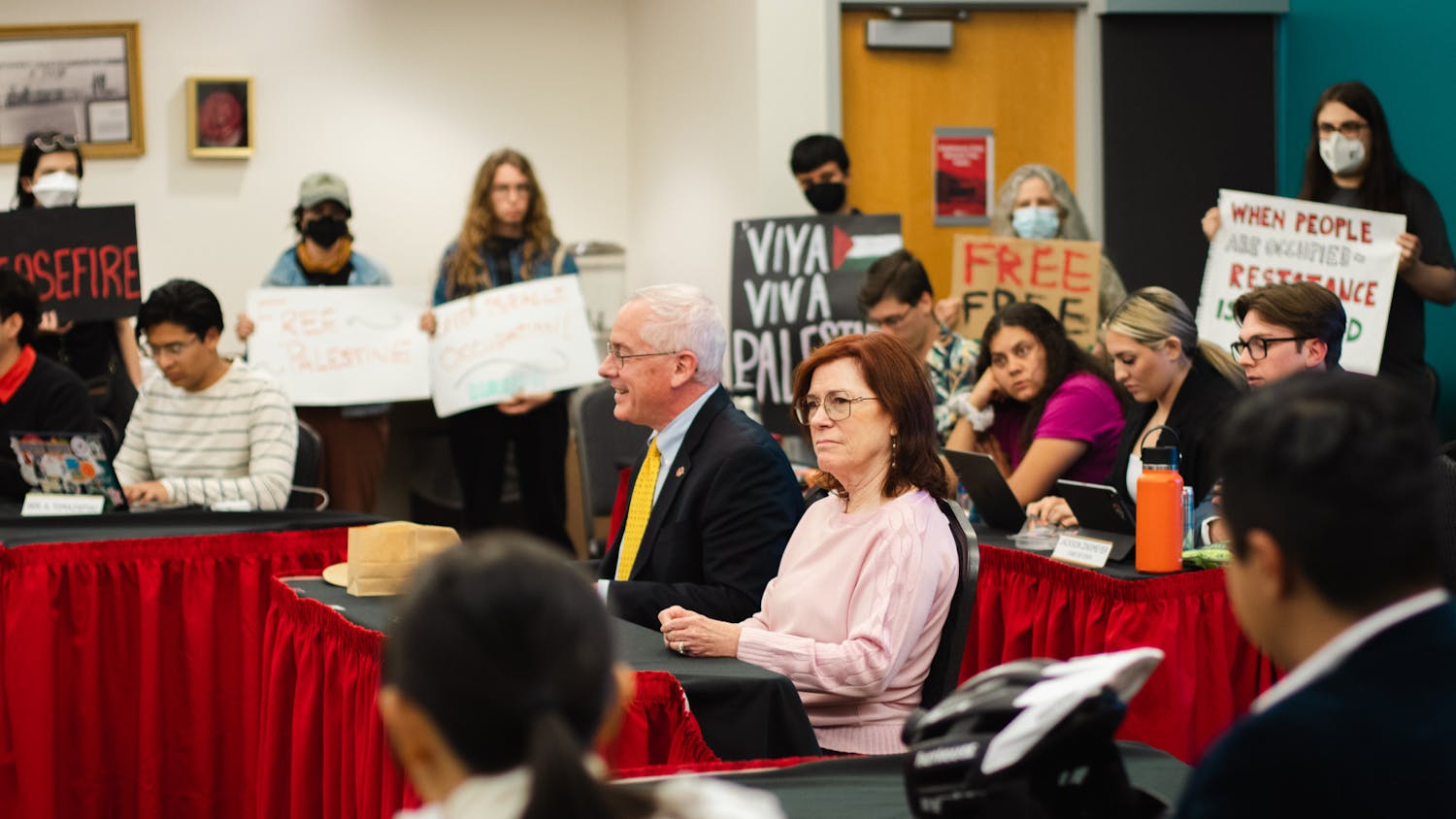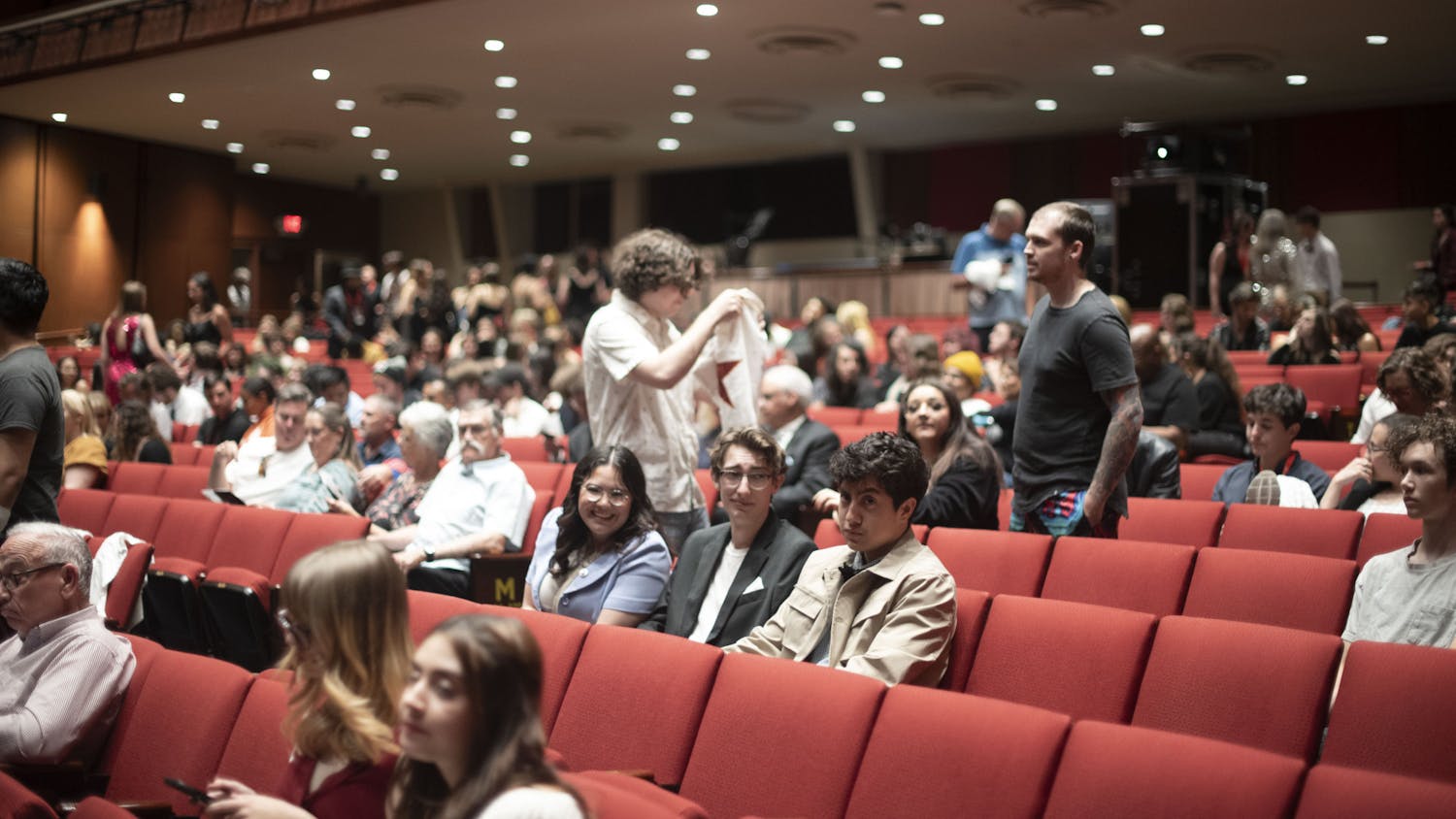Three University of New Mexico researchers have been named among the ‘World’s Most Influential Scientific Minds.’
XueXian Yang, Vittorio Cristini and Dr. Mauricio Tohen were recently recognized by Thomson Reuters on their list of Highly Cited Researchers. The list honored more than 3,000 of “the standout researchers of the last decade” from around the world in 21 different fields, according to ScienceWatch.com.
“I think it’s a great pride for UNM,” Cristini said. “It’s about 3,000 researchers worldwide, in all disciplines of science, medicine, everything — and UNM has three of them. It’s pretty good, right?”
Researchers were selected based on the number of influential scientific papers they published between 2002 and 2012. The winners’ papers ranked among the top one percent of studies most cited by other researchers, according to Reuters.
Yang, Cristini and Tohen were recognized for publishing some of the most significant and useful studies in their fields, which is a big deal, Yang said.
“We have very strong teams here; we do a lot of great studies,” Yang said. “We also have a lot of collaborators both inside of UNM and outside. Those all help a lot.”
XueXian Yang, Ph. D.
Yang is assistant professor for molecular genetics and microbiology, pathology and neurology. His research has focused on T cells, specifically Growth Hormone 17 cells, which are important in regulating essential immune functions, battle bacteria and fight against inflammatory diseases like arthritis, multiple sclerosis, bowel diseases and even cancer.
His studies have looked into how these cells are formed and what exactly they do in the body. He and his team conduct clinical trials on animals to find out more about these essential immunity warriors.
He is currently researching how doctors could regulate these cells, specifically focusing on the treatment of colon cancer, and studying other types of T cells, which are involved with allergic diseases and fighting parasites.
Yang said he was surprised by the news of making the distinguished list.
“I feel very lucky. There were many contributions by my previous mentor; I just did some of the work. So it’s not all my own credit,” Yang said. “We would like to do many more studies. Then this information may provide or suggest new treatment or approaches for these diseases.”
Get content from The Daily Lobo delivered to your inbox
Vittorio Cristini, Ph. D.
Cristini is a professor of pathology at UNM’s Department of Medicine. His research provided a major breakthrough in cancer treatment by taking a physicist’s approach to the delivery of chemotherapy to tumor tissue.
His studies have brought attention to a previously unrecognized problem, demonstrating that one of the key barriers to good outcomes of chemotherapy in cancer patients is the transport and delivery of the drugs.
Before this discovery, when a patient was not responding well to chemotherapy, doctors would say that the tumor had grown resistant to the drugs — a judgment that has never been proven, Cristini said. His research has suggested that the real problem could be that the drugs were never delivered to the tumor at all.
“There are many physical barriers in the tissue that prevent drug molecules from reaching the cancer cell in an amount that’s sufficient to kill them,” he said.
He and his team take data from patients and put it into computer models they developed, which produce a prediction of what fraction of the tumor can be killed with the drugs based on the unique properties of each patient. Doctors can then use the information to customize their treatment plans.
“It’s a really big challenge,” he said. “But it’s important that we’ve demonstrated this problem, because otherwise people — drug companies and cancer clinics — they just focus on the molecular aspect. But what we are showing is that it’s useless to have such fancy bullets if you don’t have a way to make them reach the target.”
Cristini added that being placed on the list is a huge honor.
“Typically people much ahead of me in their careers get this kind of achievement,” he said. “I mean, to be one of the top 99 mathematicians in the world, it’s quite incredible.”
He is now doing clinical trials at UNM to make better models, eventually changing the way people are treated, including nanotechnology and increasing blood flow to tumors, which will deliver more of the drugs.
Mauricio Tohen, M.D., Dr.PH., MBA
Tohen is a professor and chairman of the Department of Psychiatry. He has been researching bipolar and psychotic disorders for 25 years, and was among the first in the world to study treatment with atypical antipsychotic agents — drugs traditionally used on schizophrenics.
He is most well known for studying first-episode psychosis, and for focusing on functional outcomes for bipolar patients rather than just symptomatic outcomes. Most doctors focus on whether symptoms like psychotic episodes and racing thoughts have disappeared. If they are, they say the patient is improving.
“But what really matters to patients is returning to their previous level of functioning, not just their symptoms,” Tohen said.
Tohen said he wants to start focusing more on prevention. Data shows that the sooner a patient is treated after their first psychotic symptoms develop, the better the outcomes of treatment will be.
As the head of the psychiatry department, he is also responsible for bringing treatment methods to the community. In the wake of so many mental health-related shootings involving the Albuquerque Police Department, his team has been working to train police on the best ways to deal with psychotic suspects.
“I see us as really having the responsibility of educating the public and working with first responders, including law enforcement, to help them in terms of how to approach the mentally ill,” Tohen said. “Get them to us, and the sooner we start the treatment, the better the outcome.”
Tohen said he is happy his work is affecting the science community.
“It’s hard to describe, but I really feel very humbled by the news,” he said. “It made me feel good that some of the work we’re doing has actually caught the attention of others. The fact that our work is being cited by others, I think, is great.”
_
Jonathan Baca is a news editor for the Daily Lobo. He can be reached at news@dailylobo.com or on Twitter @JonGabrielB._





